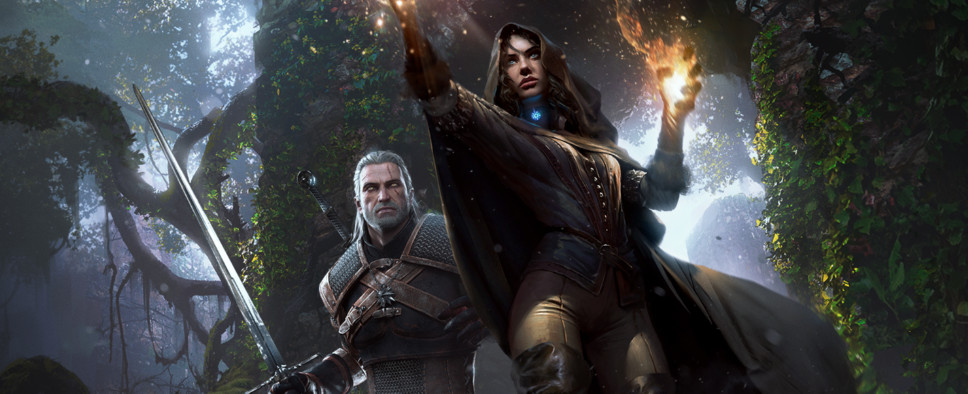The Witcher 3: Wild Hunt Review
-
Category: ReviewsHits: 31743

Article Index
There's a lot more to say about The Witcher 3, about how it perfectly captures the human cost of an invasion while recognizing that armies are formed by actual human beings, about how it manages to humanize without trivializing, about how it doesn't shy away from portraying both good and evil, and all the shades of grey in between, rejecting a simplistic "everyone is a bastard" worldview while still recognizing the complexities of human motivation.
A lot could be written about the ways the game treats family, the one that ties by blood and the one formed by choice, about the ways it seeds plot elements that won't get used until later in astoundingly natural ways, and about the ways it recaptures the atmosphere of the original game while still maintaining the most sophisticated aspects of The Witcher 2, but I'll stop here. Suffice it to say, The Witcher 3: Wild Hunt is the best-written game I've played this year, the best written game in the series, and one of the most satisfying fantasy stories I've ever played.
Gameplay, Controls and Interface
The Witcher 3: Wild Hunt is a third-person action-RPG in the same mold of The Witcher 2: Assassins of Kings. When out of combat Geralt can walk around, jump, vault over obstacles, climb, swim, dive, ride horses (almost all of them called Roach), and even use his Witcher Senses to uncover clues and tracks. In theory, this should feel liberating and open up exploration avenues, but unfortunately the impact is dampened by the game's unfortunately poor controls.
This is largely due to the frankly ludicrous amount of input lag and the heavy momentum to Geralt's movement. Simply put, Geralt takes a while to start moving and a while to stop moving, which makes the controls imprecise and annoying. There have been times where I made Geralt fall and die even though I stopped pushing the stick in time. What I should have done is anticipate the fall by stopping earlier, acknowledging Geralt's momentum. Speaking of pushing the stick, I have mixed feelings about the state of the controls on PC. There is certainly plenty of good news: the standard gamepad and mouse and keyboard schemes are both perfectly supported, and it's possible to switch between the two on the fly without any difficulty. I mostly used the gamepad during my playthrough, but the mouse and keyboard controls cover all bases and include the sort of standard shortcuts and hotkeys that we should expect from a PC title.
However, neither of the control schemes feels great. The default mouse and keyboard keybinds felt clunky to me, as opposed to the generally more comfortable controller setup, but when it comes to navigating menus, using the mouse simply makes a lot more sense, as the interface feels designed around it (ironic, considering this is the first Witcher title to launch on more than one platform from day 1, though I won't complain). In spite of being seemingly PC-focused, the inventory isn't great either. There are very few item categories - books being sorted together with potions is a particularly egregious example - and it makes the inventory a mess to navigate. It is possible to automatically sort the inventory, but it can only do so much when it's so prone to get cluttered by design. A junk category would also have been welcome, simply because finding the loot you intend to sell is a real pain.
On the higher difficulties the inventory hassles are really exacerbated by the need to go in the inventory and use or equip potions, oils and bombs often. It's possible to drink potions mid-combat again, unlike The Witcher 2, but oils have to be applied before combat. (correction: Contrary to my initial impressions, at least on the standard PC interface, it's possible to equip oils during combat.) These items need to be crafted with the appropriate components only once, and are recharged when meditating, provided you have alcohol in your inventory. It can be unintuitive at first, but it works well.
As for combat, it's a natural evolution of The Witcher 2's combat system. Signs have been rebalanced across the board to offer more but less overpowered tactical options. Blocking doesn't consume stamina and parrying requires precise timing. There are now two dodge moves too, a short side step for repositioning, and a long dodge roll. The camera is also a bit looser and more zoomed out during combat encounters, though it loses sight of the enemies a bit too often for my liking.
In the last couple of years I have been playing a lot of Dark Souls, Dark Souls 2 and Bloodborne, and in comparison The Witcher 3: Wild Hunt's combat didn't really do it for me. I want to be clear about this: I don't think the two combat systems are directly comparable. In terms of encounter composition, presentation and rules of engagement, the two game series are fundamentally different, and I'm not entirely sure The Witcher 3 would be better if it tried to ape the Japanese action-RPG series.
I do, however, think that the Polish developers should have put more thought into what makes a combat system work. The tuning is simply off. Collisions are often too large, and monster animations often play in staccato, with large moments of inactivity punctuated by attack animations with very short windups. Too often it's hard to understand what attacks Geralt will perform at a glance too, though fortunately the game is a lot more consistent than The Witcher 2 in this regard.

